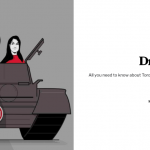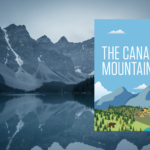Journalism school in Canada and Australia: Q&A with j-exchange student Lauren Waldhuter
Lauren Waldhuter is a journalism student at the University of South Australia who just completed a semester-long exchange at Ryerson University. Here she talks to Eric Mark Do about the experience and some of her observations on the two journalism programs, as well as the similarities and differences in the countries' media.
Lauren Waldhuter is a journalism student at the University of South Australia who just completed a semester-long exchange at Ryerson University. Here she talks to Eric Mark Do about the experience and some of her observations on the programs, as well as the similarities and differences in journalism that she sees.
First, on Australian media…
J-Source: I read that there was a disc jockey that had to undergo (factual accuracy) retraining. Is that normal in Australia?
Lauren Waldhuter: Alan Jones! He is really well-known and if you spoke to a lot of journalism students they would all sort of condemn what he does. He claims he's not a journalist: he's a commentator, so therefore he should be able to say whatever he wants. But he's a radio broadcaster — he has the most popular show in Sydney — but he's very, very right-wing. A lot of people that understand journalism certainly condemn what he does and supported the fact that he had to undergo some re-training. He's been charged before with inciting racial hatred and violence for sparking these massive riots in Sydney a few years ago, so it's not news to anyone — but it was an interesting sort of look at: Alright what constitutes journalism? That's what I took from it I guess.
J-Source: Australian DJs, it may not be journalism but that's media. But they do get charged with crimes?
LW: Alan Jones and there was another journalist Andrew Bolt who's a print journalist and he as well recently got charged with contempt of court. We in Australia, we don't have freedom of speech. … We have implied freedom of speech … I found the journalism here really different to what I'm used to at home. The articles that I've read I felt like there was a bit more sort of opinion and editorial style getting into news articles. … I think that North America as a whole as well pushes the freedom of speech thing a lot more than Australia does.
J-Source: So the journalism program at your university, is it specialized?
LW: Back home we do a mix. It's sort of like Ryerson and you do get to choose where you want to specialize in. I was really thankful to come here in my last semester which means I was eligible to do the advanced courses — radio and TV — and the practical experience that I've had here, it is amazing in comparison to what I'm used to at home. I was blown away by, literally we were thrown in the deep end and turning around stories in tighter deadlines closer to what journalists do out in the field. I'm in contact with some journalists back home who couldn't believe the work I was doing here and how much it resembled real life in the newsroom so I've been so thankful to come here and end my university career with a bang so to speak. I feel like I've been working as a journalist for the last six months, I don't feel like I've been a student, and it’s been amazing.
J-Source: So I guess you felt more like a student in Australia and you weren't in the field too much?
[node:ad]LW: Yeah, I feel like in Australia we just spent two and half years … talking about being a journalist and here it was more, “Okay, let's go be a journalist.” And that's pretty much the mindset and it worked incredibly well. It was due to staff, equipment, just the whole system that they've got here at Ryerson and I was honestly blown away. I hope that the students here realize that it's not like this everywhere else and everyone's so lucky. Don't take it for granted … it's interesting that our advanced TV news would sort of be the same as your intro to TV news. So you are producing one newscast for the entire semester whereas here we did six. The standard and what is expected here is a lot higher, but it just means that what you learn is just incredible.
J-Source: How do you compare the professors between the institutions?
LW: I think they're far better here. I think there's nothing better than a journalist who is working in the field and bringing that expertise into the classroom. We don't have enough of that at my university at home. We have some professors that haven't been working as journalists for ten years and the industry changes so quickly that once you're out of the game for two years you're already behind and you can't bring that expertise to students. So I found the professors here to be fantastic. Even my photojournalism professor Peter Bregg couldn't come one week because he had to go and photograph Justin Trudeau up in Montreal — you know, that current.
J-Source: What kind of journalism have you been consuming here?
LW: … Twitter is a big thing in Canada. Here everybody—average people—seem to be using Twitter instead of Facebook. Whereas in Australia the only people that use Twitter are politicians and journalists — not members of the public too much. So that was interesting … there's a lot more Twitter [usage] from news organizations because the general public are consuming it.
J-Source: Any last words?
LW: Something that has become really apparent to me is how different journalism is all around the world and how I always wondered if I could work overseas one day and it would be really difficult because you have to change your style and to fit your audience so much. It's the same as moving from company to company and medium to medium and how your skills have to be interchangeable and you really have to be flexible, more than ever before. The whole experience has just shed a lot of light and emphasized how the journalist today really has to be as flexible as possible to really succeed. It's been a good experience.
Lauren Waldhuter is a 21-year-old journalism student from Adelaide, Australia. She spent the fall semester studying in Toronto, and is now finished her journalism degree. She has been working as a production assistant for the Australian Broadcasting Corporation (ABC) in Adelaide for the past 2 years. She hopes to get a job as a journalist with the ABC after she returns to Australia at the end of January.
*This interview has been edited




